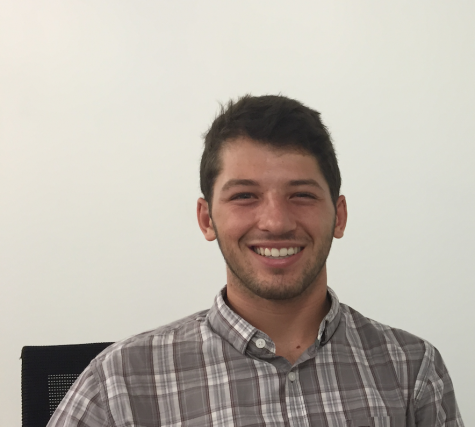Local experts read the same words, draw different conclusions
September 30, 2015
Mr. Yaki Lopez, Consul for Political Affairs at the Consulate General of Israel in Los Angeles, said the Iran deal will not work because the Iranians will not follow it.
“The agreement at this point does not prevent Iran from gaining a nuclear weapon,” Mr. Lopez said in an interview with the Boiling Point. “It paves the way towards a nuclear weapon.”
Mr. Lopez said the deal’s 24-day window before inspections of previously unknown sites was a particular problem.
“That would be the same as giving a suspected drug lab 24 days notice before a police raid,” Mr. Lopez said.
But Dr. Dalia Dassa Kaye, who serves as director of the Center for Middle East Public Policy at the RAND Corporation in Santa Monica, said properties of nuclear materials make it unlikely Iranians could really make it disappear.
“You cannot get rid of that in 24 days, because uranium leaves traces,” said Dr. Kaye, addressing four local synagogues at B’nai David-Judea Aug. 16. “As soon there is a concern about an undeclared site, there will be a lot of eyeballs on that site.”
RAND is a think tank that offers research and analysis to the United States Armed Forces.
The Israeli Consulate followed the opinion of Prime Minister Benjamin Netanyahu, who on July 14 called the deal “a historic mistake.”
Mr. Lopez also argued that Iran’s regime cannot be trusted, given their many offenses in the past, especially towards Israel.
“This deal will give them an additional lifeline, in terms of hundreds of billions of dollars over the next 10 years,” Mr. Lopez said.
Dr. Kaye agreed but said it would be easier to counter those things if Iran does not have a nuclear weapon.
She called the inspection and limitations in the deal “very robust,” with “unprecedented” verification requirements.
Even though the agreement “sunsets” after 15 years, she said, it’s better than Iran possessing nuclear weapons by next year.
“If we end the deal right now,” said Dr. Kaye, “Iran tomorrow could go back to the enriching the levels it was enriching before 2013 and we’d be in a position where today Iran would be three months away from building a bomb.”
Mr. Lopez said negotiators should have asked for more.
“They should have insisted that Iran doesn’t obtain nuclear weapons ever– not in three years, not in three months, not in 10 years,” he said. “The way to do that was actually to strengthen the sanctions regime, to enforce them more harshly.”
But Dr. Kaye said that most counties would drop their sanctions if the deal fell apart, leaving Iran with no incentive to negotiate a new, tougher deal.
“I’ve never seen an argument so detached from reality to suggest that there’s a better deal out there,” she said. “If you reject this deal there will be no restraints on the Iranian nuclear program. Rejecting it at this stage, you come out with nothing.”













